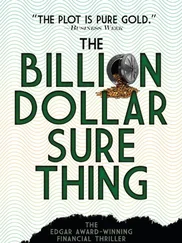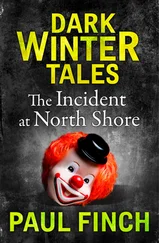Paul Moorcraft - The Anchoress of Shere
Здесь есть возможность читать онлайн «Paul Moorcraft - The Anchoress of Shere» весь текст электронной книги совершенно бесплатно (целиком полную версию без сокращений). В некоторых случаях можно слушать аудио, скачать через торрент в формате fb2 и присутствует краткое содержание. Жанр: Триллер, на английском языке. Описание произведения, (предисловие) а так же отзывы посетителей доступны на портале библиотеки ЛибКат.
- Название:The Anchoress of Shere
- Автор:
- Жанр:
- Год:неизвестен
- ISBN:нет данных
- Рейтинг книги:4 / 5. Голосов: 1
-
Избранное:Добавить в избранное
- Отзывы:
-
Ваша оценка:
- 80
- 1
- 2
- 3
- 4
- 5
The Anchoress of Shere: краткое содержание, описание и аннотация
Предлагаем к чтению аннотацию, описание, краткое содержание или предисловие (зависит от того, что написал сам автор книги «The Anchoress of Shere»). Если вы не нашли необходимую информацию о книге — напишите в комментариях, мы постараемся отыскать её.
The Anchoress of Shere — читать онлайн бесплатно полную книгу (весь текст) целиком
Ниже представлен текст книги, разбитый по страницам. Система сохранения места последней прочитанной страницы, позволяет с удобством читать онлайн бесплатно книгу «The Anchoress of Shere», без необходимости каждый раз заново искать на чём Вы остановились. Поставьте закладку, и сможете в любой момент перейти на страницу, на которой закончили чтение.
Интервал:
Закладка:
With all this rush he put his problems in the cellar at the back of his mind. After three days, however, he decided he had better attend to them. It was quiet when he climbed down the stairs with some food and water. He walked past the new inmate and knocked on Marda’s door. He didn’t hear anything as he put on her light and looked through the grille.
She was lying on the bed asleep or dazed. He was wary.
“Christine, wake up. I have some food for you. I’m sorry I haven’t been down for a while, but I’ve been busy.”
She stirred when the light went on.
“Are you sick?”
“Yes. Very. Thanks to you,” she said in a croaking voice.
“Still a little fire left in the belly I see. I shall open the grille fully and pass through the food and water. That should make you feel better.”
She was now more alert. “Thank you. I need food badly. And some heat.”
“We shall see.”
He started to walk away.
“What about my brother?”
“I am sure his fat can sustain him for a while,” Duval said matter-of-factly.
“No, no, please don’t go. He’s suffering badly from concussion and he’s lost quite a bit of blood. Please let him have some-all-of my food. But we both need some water, please.”
Duval carried on walking away.
“No, no, you can’t kill him, not after all he’s gone through. I’ll do anything. Please. I promise I’ll come to South America. Anything, but please let my brother live. Let me join him.”
The lights went off and the cellar door was shut.
Marda agonised over her brother’s condition, but her mind swirled into other nightmares besides Mark’s possible death. In a feverish state, she saw herself married to Duval in the Shere church. Lapsing back into reality, she was violently sick. The image of Denise and Mark lying on top of each other, clutching each other in death, kept impinging on her semi-consciousness. She tried to keep a grip on her sanity. She so wanted to see her brother, but irrationally she was afraid that he would be shocked by the psychological and physical changes in her. Mark had seen her face, but her body had withered. She felt sub-human, worse than an animal, after so many months in the black hole. When she hoped for freedom, when she dreamed that she and her brother could float out into the greenness outside, she shuddered with panic. She was shocked to find that she had developed a fear of leaving the womb, of entering the world outside, which she had almost forgotten. She prayed to God for His help to save Mark and grant them both the sweet mercy of freedom. She remembered that even St. Peter-or was it St. Paul? — had denied Christ three times. Perhaps her memory was fading, along with her strength, or perhaps her religious instruction had been too superficial. Later, in freedom, she might want to learn more. Perhaps.
Sometimes she could not separate dreams from reality. On occasion her nightmares seemed so real that she wondered whether Duval had drugged her again. She recalled the strange, acrid taste in her mouth. She half-remembered the smell of burning flesh, then the pain and the scar of the cross Duval branded on her cheek. Fever took hold, loosening her grip on reality.
At other times she felt entirely lucid. Food and water and heat helped. She was almost herself when Duval came back with a sheaf of papers that he handed through the grille.
“You said you would do anything,” he said in a voice that had altered in some distinct but indefinable way. “I would like you to read the final chapter of my book. Your comments, even now, would be appreciated. The rest is finished, and all collated in a tidy pile on my desk. Your end and Christine’s will run in tandem. As you must realise, it is fitting that thou and the anchoress will be sanctified together in the Holy Spirit. The bishop hath spoken unto me…”
Duval rambled on in a strange monotone, his cold eyes flashing, while Marda tried to understand his disjointed words as he lapsed into medieval English.
Finally, she could take no more: “Would you, please, give my brother something to eat and drink? I beg you.”
“I will ponder upon that when thou hast read my final chapter.”
“OK, I’ll do it, but come back soon,” she said urgently.
She read the final section but couldn’t really take it in, no matter how much she concentrated. She was weak, ill, cold, frightened and desperately concerned about her brother: not the ideal circumstances for literary criticism. She must, however, make some sense of it because he was bound to quiz her.
She was dismayed by the passages on Christine’s sudden switch to extreme self-mortification, which said much about Duval’s increasingly volatile state of mind. The priest’s personality was disintegrating, not Christine’s; Marda had grown to like and empathise with the anchoress of Shere. Duval’s sick fascination with cuts, purges and whips boded ill for Marda unless she and Mark escaped soon. The rest of the writing seemed to be about Christine’s ecstatic last years in her cell, the return of her visions and her final death, still in the wall, at the age of thirty-three, the same age as Christ when He was crucified. Then followed a few final gushing paragraphs about her possible canonisation. Same twisted sort of stuff as before, but she would steel herself to be complimentary. She was the tamest and lamest of critics.
For the next two days Duval brought food and water intermittently for Marda, and once some heating oil and a packet of cigarettes. He didn’t ask about the final chapter, and refused to discuss it even when she raised the subject.
She tried a series of variations on “it’s a masterpiece, but please feed my brother.” Yet no matter what she said, he seemed like stone. Mark occasionally shouted incoherently, but for the most part he was silent.
After hours of stillness and darkness, she heard the adjacent cell door opening and a dragging sound.
“Please open the grille. Let me see my brother,” she begged.
The priest said nothing. For half an hour she heard strange noises, and then screams. He was torturing Mark.
“Stop it, please, I’ll do anything,” she shouted for the hundredth time.
She continued to hear the low moaning which echoed in the corridor. Perhaps it was another victim. Maybe it was the American, Gould, who had also been grabbed by Duval. She shouted to her brother, but he did not-or could not-respond.
A sound of sawing filled the corridor. She tried to shout again, but she had no voice left.
It was one of Duval’s final acts in the cellar. He knew he had but a short time left. No one had come looking for the army officer, so he must have been working alone, but it was time to get out. First, though, he wanted to see if his historical description of Sir Richard’s demise was accurate. How long could a man survive the tearing out of his intestines? Yes, he wanted to know that. For a while a strong man could perhaps hold on, and he wondered how difficult it was to quarter a grown man. Soon he would know that, too. It would be unpleasant but necessary work.
Marda was reaching the outer limits of her endurance, yet she needed to know what dreadful thing was happening. Then, if the monster kept her much longer, she would try somehow to kill herself. She explored the possibilities quickly in her mind, but then dismissed them. “No, no, no, I have come this far, I won’t give up,” she said to herself in a whisper.
Duval suddenly slid open the grille and announced coldly, “I regret to inform you that your brother is about to die.”
Marda launched herself at the door as her tormentor slammed shut the grille. She could not cry any more. She lay on her rough bench, lurching in and out of consciousness, her exhausted nervous system mercifully relieving her tortured mind, but only momentarily.
Читать дальшеИнтервал:
Закладка:
Похожие книги на «The Anchoress of Shere»
Представляем Вашему вниманию похожие книги на «The Anchoress of Shere» списком для выбора. Мы отобрали схожую по названию и смыслу литературу в надежде предоставить читателям больше вариантов отыскать новые, интересные, ещё непрочитанные произведения.
Обсуждение, отзывы о книге «The Anchoress of Shere» и просто собственные мнения читателей. Оставьте ваши комментарии, напишите, что Вы думаете о произведении, его смысле или главных героях. Укажите что конкретно понравилось, а что нет, и почему Вы так считаете.












